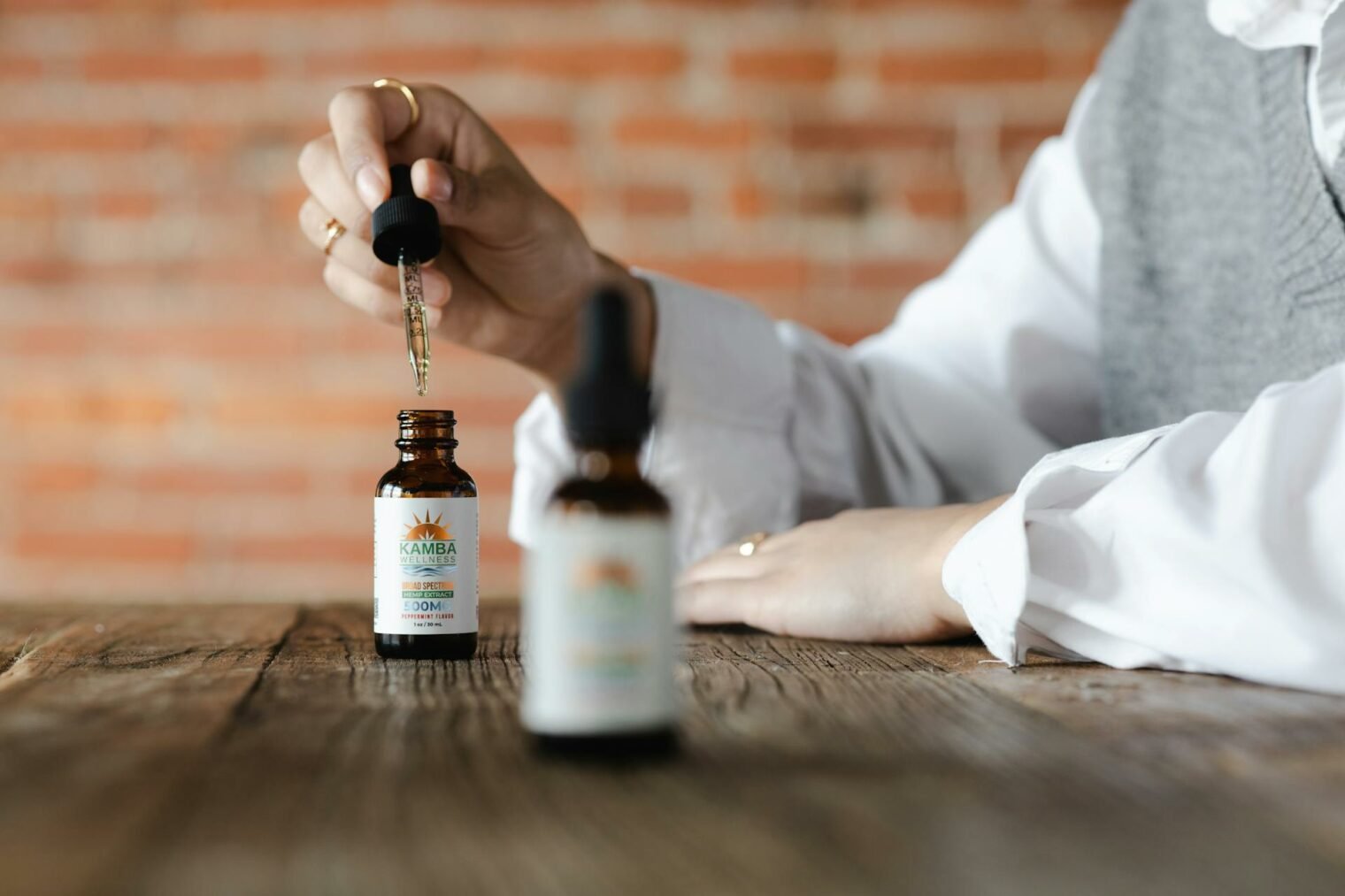What Are The Differences Between THC And THCA?

Table of Contents
Eveyone wants to know the differences between THC and THCA. Ever wonder why chewing on fresh cannabis leaves doesn’t make you high? That’s because they’re bursting with THCA, not THC. In this post, we’ll dive into the differences between these two compounds and how each affects your body.
Keep reading to uncover their secrets!
THC vs. THCA
THCA is the non-psychoactive precursor to THC found in raw cannabis plants, with potential medicinal properties. The chemical differences between THCA and THC contribute to their distinct effects on the body.
Non-psychoactive tetrahydrocannabinolic acid (THCA) and its abundance in raw cannabis plants
Raw cannabis plants contain a wealth of THCA, the non-psychoactive counterpart to THC. This substance is found in the fresh leaves and flowers, where it sits waiting in its natural acidic form.
It’s during this stage that cannabis holds the highest levels of THCA, before any drying, curing, or heat application transforms it into its well-known relative.
Cannabis plants produce cannabinoids like THCA through a process starting with CBGA, their common precursor. Unlike THC which can alter mind states, THCA stands out as it doesn’t cause any psychoactive effects.
Its presence is key for those seeking the potential medical properties without altering consciousness.
THCA as a precursor to tetrahydrocannabinol (THC) with potential medical properties
Diving deeper into the cannabis plant’s chemistry, we find that THCA stands at the forefront as not just an abundant component but also a pivotal precursor to THC. Unlike its famous counterpart, THCA does not produce mind-altering effects.
Scientists see it as inactive in terms of psychoactivity; however, it may hold keys to significant medical benefits. Researchers have unearthed properties within THCA that could potentially make strides in modern medicine.
THCA exhibits anti-inflammatory and neuroprotective actions that might help individuals dealing with conditions like epilepsy or neurodegenerative diseases. Early studies are hinting at its ability to reduce nausea too (antiemetic effect), which could be a boon for patients undergoing treatments such as chemotherapy.
Its transformation into THC occurs through decarboxylation—a process where heat application causes THCA to lose a carboxyl group, activating the intoxicating potential of THC. This step is crucial for users seeking the therapeutic edges without the high, maintaining interest in raw forms for health optimization.
As part of tailored treatment plans, patients sometimes incorporate raw cannabis rich in THCA into their diets, aiming to harness these emerging health benefits directly from source materials like juices and concentrates.
Chemical differences between THCA and THC
Understanding the chemical differences between THCA and THC is crucial when examining their unique properties and effects. Here’s a comparative look structured in an HTML table:
Aspect | THCA | THC |
Chemical Name | Tetrahydrocannabinolic acid | Tetrahydrocannabinol |
Psychoactive Properties | None | Psychoactive, causing the ‘high’ |
Chemical Formula | C22H30O4 | C21H30O2 |
Presence in Plant | Abundant in raw cannabis | Forms upon drying and heating of cannabis |
Molecular Structure | Contains an extra carboxyl group (COOH) | Lacks carboxyl group, decarboxylated form of THCA |
Decarboxylation | Transforms into THC when exposed to heat or UV light | Already decarboxylated, no transformation needed |
This table highlights the key distinctions between THCA and THC, from their presence in the cannabis plant to their molecular differences. It’s the carboxyl group in THCA that sets it apart, rendering it non-psychoactive. Through decarboxylation, THCA loses this group to become the well-known psychoactive THC.
Properties and Benefits of THCA
THCA offers non-psychoactive effects and has potential anti-inflammatory, neuroprotective, and antiemetic properties. It also shows promise for therapeutic effects in epilepsy, inflammatory diseases, and neurodegenerative disorders.
Non-psychoactive effects
THCA does not produce any intoxicating effects when consumed, unlike its derivative THC. This non-psychoactive compound can offer potential health benefits without causing a “high.” Research suggests that THCA possesses anti-inflammatory, neuroprotective, and antiemetic properties, making it an exciting area of study for its potential therapeutic applications in epilepsy, inflammatory diseases, and neurodegenerative disorders.
Additionally, consuming THCA in raw form or concentrates may provide natural pharmacological properties for healing and protection due to its non-psychoactive nature.
Anti-inflammatory, neuroprotective, and antiemetic properties
THCA exhibits anti-inflammatory properties, which can be beneficial for individuals with inflammatory diseases. Additionally, it displays neuroprotective effects that make it potentially useful for managing epilepsy and neurodegenerative disorders. Furthermore, THCA possesses antiemetic properties, offering potential relief for those experiencing nausea and vomiting. The unique combination of these properties positions THCA as a promising area for further research and exploration into its potential therapeutic benefits.
Potential therapeutic effects for epilepsy, inflammatory diseases, and neurodegenerative disorders
THCA exhibits potential therapeutic effects for epilepsy, inflammatory diseases, and neurodegenerative disorders. Research indicates that THCA may offer relief and benefits in the following ways:
- Reduction of seizure activity in epilepsy patients.
- Alleviation of inflammation associated with conditions such as arthritis and inflammatory bowel disease.
- Protection against neurodegeneration and potentially slowing the progression of conditions like Alzheimer’s disease and Parkinson’s disease.
Research on THCA
Conflicting preclinical research and the need for further studies highlight the potential benefits of THCA. To learn more about how THCA differs from THC and its potential medical properties, keep reading!
Conflicting preclinical research and the need for further studies
Preclinical research on THCA has been contradictory, causing uncertainty about its potential benefits. While some studies indicate positive health effects in low concentrations, other research suggests conflicting outcomes.
This highlights the need for more comprehensive and conclusive studies to fully understand the therapeutic potential of THCA.
The conflicting preclinical research underscores the importance of further investigation into the properties and benefits of THCA, which can provide valuable insights into its potential medical applications.
Protective effects of THCA on cannabis plants
THCA protects cannabis plants from UV-B light radiation, which can damage plant cells. It also aids in the natural process of necrosis in leaves, allowing the plant to eliminate dead or damaged cells and recycle nutrients for growth.
Additionally, THCA acts as an external immune system for the cannabis plant, helping to protect it from microbial pathogens that could harm its health.
With these protective effects, THCA plays a significant role in maintaining the resilience and health of cannabis plants during their growth cycle. As a result, it offers natural pharmacological properties that contribute to the healing and protection of the plants.
Consumption of THCA in raw form and concentrates for health benefits
While THCA protects cannabis plants from various environmental stressors, its consumption in raw form or concentrates offers potential health benefits for humans. Patients consume raw cannabis to benefit from the non-psychoactive properties of THCA by incorporating it into their diets through juices, smoothies, and salads.
Additionally, crystalline THCA can be extracted and consumed in concentrated form with added terpene blends to enhance its therapeutic potential. This cannabinoid is reported to have anti-inflammatory effects that could aid in treating a range of conditions including epilepsy and inflammatory diseases.
Moreover, research suggests that consuming low concentrations of THCA may yield positive health effects for individuals.
Conclusion
Understanding the differences between THC and THCA sheds light on their unique properties. THCA, abundant in raw cannabis, offers potential medical benefits without psychoactive effects.
Research aligns with the idea that THCA could hold promise for various health conditions. Exploring these differences helps individuals make informed decisions about cannabis consumption and its potential therapeutic effects on the body.



